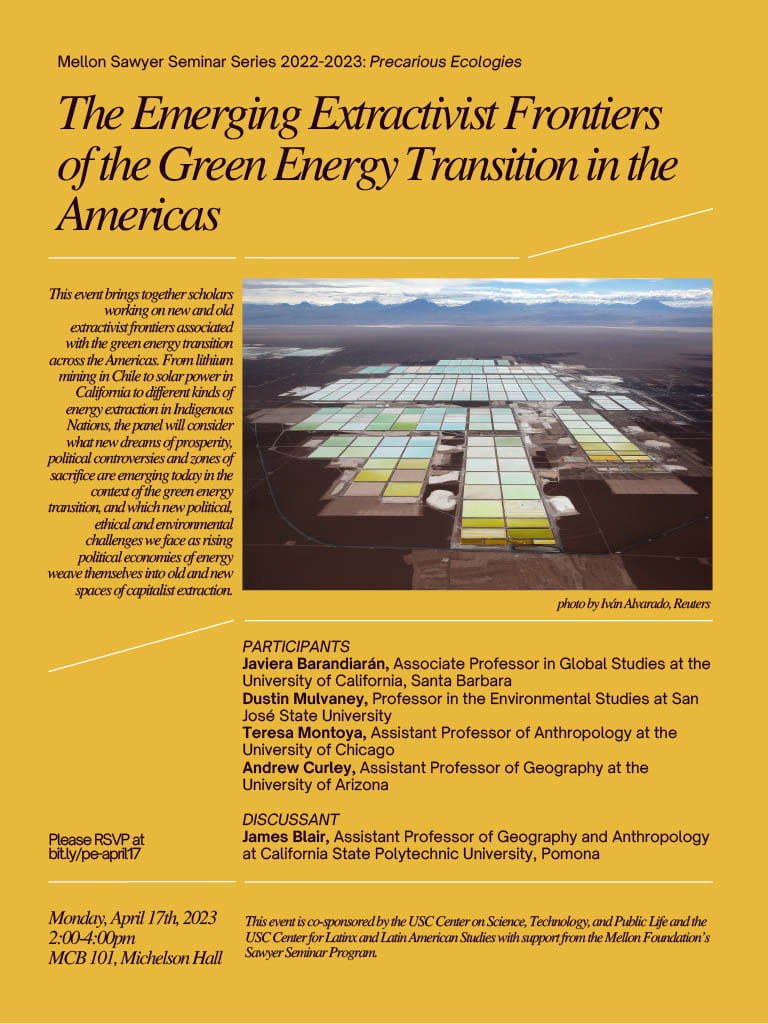Precarious Ecologies
The Mellon Foundation has awarded USC a Sawyer Seminar for Precarious Ecologies: Science and Social Justice in the Production of Environmental Knowledge. Co-hosted by the Center on Science, Technology, and Public Life and the Center for Latinx and Latin American Studies and led by co-PIs Juan de Lara and Andrew Lakoff the seminar will take place during the 2022-23 academic year.
In our era of ecological crisis, we know that exposure to environmental risk is not evenly distributed. In cities, poorer communities and communities of color are more likely to be exposed to hazards such as toxic waste, airborne particulate matter, or climate-related heat island effects. In rural areas, the effects of pesticide use or pollution from oil production are concentrated among precarious groups. This seminar asks: how is scientific knowledge about unequal vulnerability produced? How, in turn, is such knowledge brought to bear in addressing policy debates concerning potential mitigation measures? The seminar investigates, in particular, the “democratization” of expert knowledge. How do marginalized and racialized communities garner and disseminate evidence of environmental harm? What debates arise around the authority of such knowledge claims? More generally, we ask: how do scientific knowledge and the politics of social justice come into relation in the adjudication of environmental controversies? To address these questions, our seminar draws on scholarship in several fields in the humanities and humanistic social sciences, including environmental history, urban studies, and science and technology studies.
Join the Precarious Ecologies mailing list to receive updates.
Upcoming Events
Monday, April 17, 2023
2:00-4:00pm PST
Michelson Hall (MCB) 101
In-person event: RSVP here

This is the sixth event of the 2022-23 Mellon Sawyer Seminar Precarious Ecologies: Science and Social Justice in the Production of Environmental Knowledge.
This event is co-sponsored by the USC Center on Science, Technology, and Public Life and the USC Center for Latinx and Latin American Studies with support from the Mellon Foundation’s Sawyer Seminar Program.
